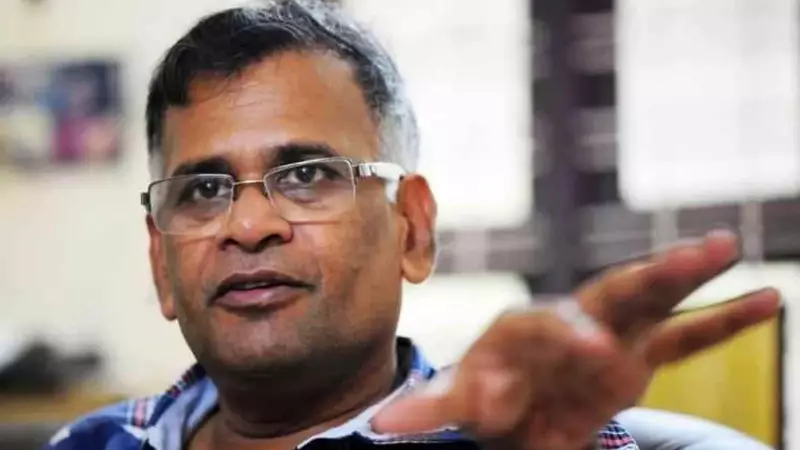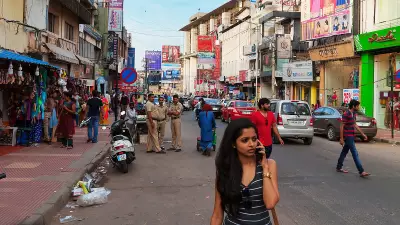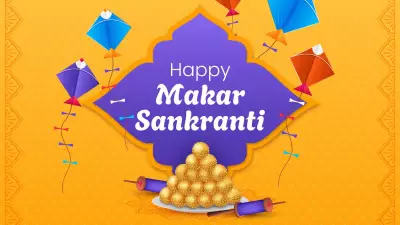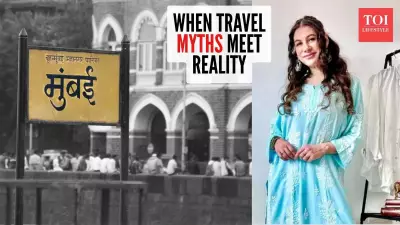
In a revealing interview that spans the deeply personal to the grandly philosophical, acclaimed Indian author B Jeyamohan has delivered a scathing assessment of Indian English literature, describing it as "very, very inferior kind of writing" while articulating his vision of writing as a spiritual pursuit rooted in Indian cultural soil.
The Language Debate: Regional Roots vs Global English
Jeyamohan, who writes primarily in Tamil and Malayalam and boasts over 250 published works including 20 novels and 12 volumes of short stories, didn't mince words when discussing Indian English literature. "I won't call Indian English writing as mainstream writing," he stated bluntly. "It is very stylised and belongs to the urban upper class with many limitations. Personally, I don't have any respect for Indian English writing."
The author, best known for his 22,000-page epic retelling of the Mahabharata titled Venmurasu, extended his criticism to Salman Rushdie's recent work Victory City, calling it "very shallow, very pretentious, very alien text" beyond its stylized English.
Jeyamohan revealed his own complicated relationship with English, having started writing in the language forty years ago before abruptly stopping. "I suddenly stopped because I came to know that my linear language was actually changing. I was losing the rhythm of my natural language," he explained. This conscious decision to restrict himself to Tamil, he believes, allowed him to develop a unique style and personal language instrument.
Writing as Spiritual Practice: The 'God of Language'
For Jeyamohan, writing transcends career aspirations and becomes what he describes as "tapasya" - a disciplined spiritual pursuit. He elaborated on his relationship with what he calls the "god of language," seeing himself as merely a tool or instrument for a force greater than himself.
"Language is something more than our mind and intellect," Jeyamohan reflected. "It is the source of collective intelligence or the collective subconscious. I am getting my texts from the collective unconscious of the Tamil people. I have to do a kind of tapas to get the language."
This spiritual approach to creativity connects to ancient Indian literary traditions, where poets would receive the first line of their epics from divine sources. "The goddess Kali gives the first line to Kalidasa. The God gives the first line to Kamban. So the language should come from somewhere else beyond you, entirely beyond you," he noted, explaining why he remains "very nervous about language, very humble before it."
Epic Ambitions: Reimagining the Mahabharata
Jeyamohan's monumental work Venmurasu represents seven years of dedicated writing, resulting in 26 volumes totaling 22,000 pages. The project had been brewing for 25 years before he began writing at age 51, involving extensive research including travels to all Mahabharata-related sites across India and compiling over 20,000 pages of manuscript notes.
Unlike traditional retellings, Jeyamohan's version offers a distinctive perspective. "In my Mahabharata, the woman characters are more powerful because I am from a land of women; I'm a Malayali, I have a lot of mothers in my memory," he revealed. "So I wrote the story of the Mahabharata as a woman's story."
The author sees the epic through a philosophical lens, interpreting it as "a war between Vedanta and the Vedas." He explained: "Vedanta is a unifying philosophy while the Vedic system empowered the natural inheritance of the Kshatriyas and was divisive. The newly emerged kingdoms on the coast of India, allied with Krishna, fought against the Kshatriyas entitled by the Vedas."
From Page to Screen: Adapting Ponniyin Selvan
Jeyamohan's creative versatility extends to screenwriting, notably for Mani Ratnam's cinematic adaptation of Ponniyin Selvan. He contrasted the processes of novel writing and screen adaptation, emphasizing the different demands of each medium.
"Adapting a creative work for a movie is entirely different. You cannot bring the grandeur of a novel into a movie," he observed. For the two-part Ponniyin Selvan adaptation, he selected 120 key scenes with visual value from the original text.
The author highlighted how cinematic storytelling requires different pacing than literary narratives. "A novel has its own pace; it can start slowly... But if a movie starts like that, the story only begins after half an hour, and the audience won't be patient." For the film version, they began immediately with conflict: "There are three aristocrats, and one is going to die. The story starts with 'Who is going to die?'"
Principles and Refusals: Rejecting State Honors
Jeyamohan's commitment to his principles extends beyond literary matters to his relationship with institutional recognition. He confirmed having rejected both the Padma Shri and the Sahitya Akademi award, stating "I have a policy that I don't accept anything from any government."
When a central government cultural department officer informed him of his Padma Shri selection, he declined the honor, maintaining his consistent stance against accepting governmental recognition.
Literary Recommendations and Unfinished Business
For aspiring writers and readers, Jeyamohan recommended three foundational Indian texts: the Mahabharata, Kambaramayanam, and Tirukkural. "These three texts created me," he acknowledged. "I can re-read them and always find new perspectives."
The author also revealed his most challenging project - an unfinished novel that has caused him ongoing frustration. "I wrote 2,500 pages over three years and then stopped. I have never been able to start it again," he confessed. "The manuscript is still with me. I look at it every day with pain, but I cannot continue."
This unfinished work serves as a humbling reminder of his relationship with creativity. "It informs me that I am nothing more than a tool. If it was possible it was written by you, you can complete this. But this text makes me feel very small, a tiny insect before the great god of language."
Through his extensive body of work and principled stands, Jeyamohan presents a compelling alternative vision of Indian literature - one deeply connected to regional languages, cultural roots, and spiritual dimensions of creativity, challenging what he perceives as the limitations of globally-oriented English writing from India.





